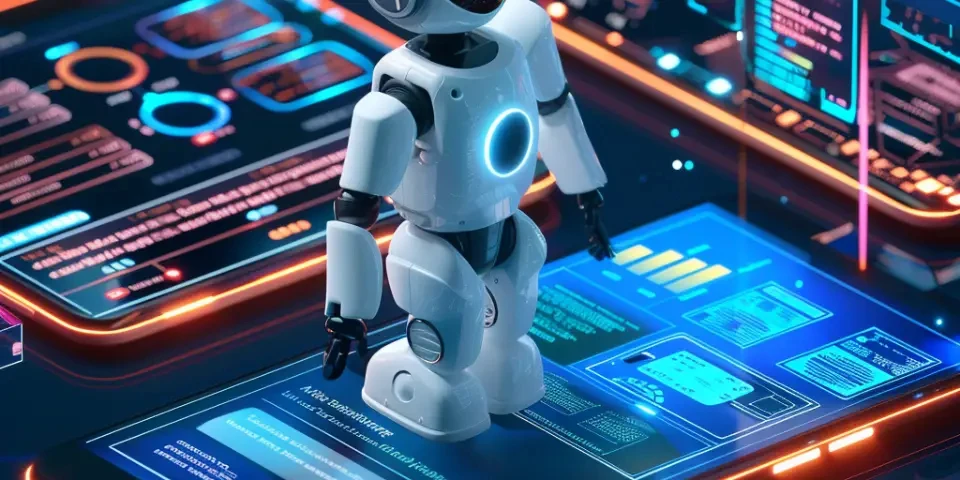AI as a Social Expert How Smart Algorithms are Improving Social Skills
Artificial Intelligence (AI) has emerged as a revolutionary tool in various domains, and its impact on social skills should not be underestimated. From improving communication to enhancing emotional intelligence, smart algorithms are transforming the way we interact with others. In this article, we will explore how AI is being leveraged as a social expert, revolutionizing the way we navigate social relationships.
Enhancing non-verbal communication
Non-verbal communication plays a crucial role in human interaction, conveying emotions, intentions, and attitudes. AI-powered systems can analyze facial expressions, body language, and even voice tones to decode non-verbal cues. By understanding these cues, AI algorithms can provide real-time feedback and suggestions to enhance non-verbal communication skills.

For instance, Companion, an AI-powered mobile app, uses computer vision algorithms to analyze a user's facial expressions during video calls and provides suggestions on how to appear more engaged or empathetic. By leveraging AI, users can develop a better understanding of their own non-verbal cues, leading to improved social interactions.
Empowering empathetic responses
Empathy is essential for building strong social connections, and AI is playing a vital role in fostering empathetic responses. Chatbot systems, equipped with sentiment analysis algorithms, can detect emotional cues in written text and respond appropriately.
Woebot, a popular mental health chatbot, uses natural language processing algorithms to understand and empathize with users' emotions, providing a safe space for individuals to express their feelings. Through regular interactions, users can practice empathy and improve their emotional intelligence.
Assisting in social skill development
AI-powered applications are increasingly being used as virtual coaches to assist individuals in improving their social skills. These applications provide personalized feedback, guidance, and exercises based on an individual's specific needs.
SocialPro, an AI-driven social skills training platform, offers interactive modules that simulate various social scenarios. Users can practice conversations, receive feedback on their performance, and gain confidence in social settings. By leveraging AI, individuals can enhance their social skills at their own pace, in a judgment-free environment.
Facilitating cross-cultural communication
Cultural differences can often pose challenges in effective communication. AI has the potential to bridge this gap by providing real-time translation services and cultural sensitivity training.
Google Translate utilizes AI algorithms to provide accurate and quick translations across multiple languages. By breaking down language barriers, individuals can communicate more effectively, fostering understanding and collaboration in diverse social environments.
Cultural360 is an AI-driven platform that offers virtual cultural immersion experiences. It simulates real-life situations and helps users navigate cross-cultural interactions, improving cultural competence and enabling them to build meaningful connections with people from different backgrounds.
Improving social media interactions
Social media has become an integral part of our social lives, and AI algorithms are being leveraged to enhance our digital interactions. AI-powered systems can analyze user preferences, behaviors, and social network data to curate personalized content and facilitate meaningful connections.
Facebook's algorithm utilizes machine learning to analyze user interactions and recommend relevant content and connections. This algorithmic approach enhances users' social media experiences, enabling them to discover like-minded individuals and engage in meaningful conversations.
Addressing challenges in dating
The dating landscape is often fraught with uncertainty, and AI is stepping in as a social expert to address these challenges. AI-powered dating apps use advanced algorithms to match users based on their preferences, interests, and compatibility.
Tinder, one of the most popular dating apps, employs AI algorithms to suggest potential matches, taking into account factors such as location, common interests, and user behavior patterns. This AI-driven approach has revolutionized the dating experience, making it more efficient and increasing the likelihood of compatible connections.
FAQs:
Q: Can AI replace human social experts?
A: While AI is undoubtedly transforming social skills, it cannot completely replace human social experts. Human interaction involves complex emotions and nuances that AI algorithms have limitations in understanding. However, AI can complement human expertise by providing valuable insights and training.
Q: Is AI biased in its social analysis?
A: AI algorithms can inherit biases from the data they are trained on, potentially leading to biased social analysis. It is crucial to ensure the ethical development and deployment of AI systems to mitigate biases and ensure fair and unbiased social interactions.
Q: Can AI improve social skills for individuals with social anxiety?
A: AI-powered social skill development applications can be particularly beneficial for individuals with social anxiety. These platforms provide a safe and controlled environment for individuals to practice social interactions, improving their confidence and reducing anxiety in real-life situations.
References:
1. Companion App - https://www.companionapp.io/
2. Woebot - https://woebot.io/
3. SocialPro - https://www.socialpro.com/
Explore your companion in WeMate